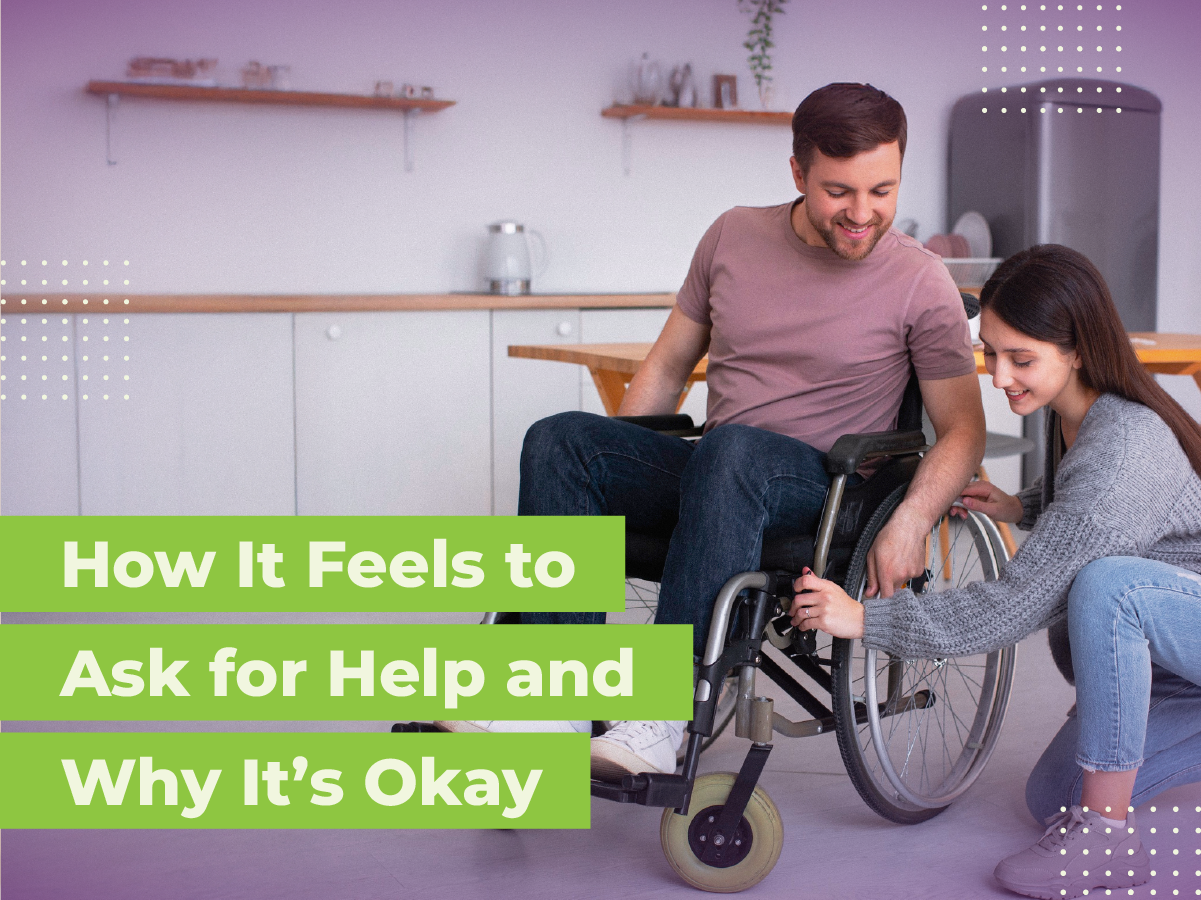How It Feels to Ask for Help—and Why It’s Okay

There is often a pause before the words arrive, a hesitation that does not come from the size of the request but from what asking seems to reveal. To say “I need help” is to step into a space where pride, independence, and vulnerability all live together, and it is rarely simple. For many people with disabilities, that pause carries memories of being ignored or dismissed, or of being answered with pity rather than respect, and so the act of asking carries more than the request itself. It carries a history of how others have responded before.
The Hesitation
In a culture that praises independence, asking for help can feel like stepping against the current. We are taught, often from childhood, that strength looks like carrying things alone, that to manage without others is somehow to prove worth. Within that mindset, to ask is to risk being seen as less. But independence, when looked at honestly, has never meant complete separation. None of us live untouched by the help of others. The food we eat, the roads we travel, the words we speak. They are all sustained by shared effort. Interdependence is the real condition of being human, and yet in the moment of asking it is easy to forget this and feel alone with the weight of need.
When Help is Given Well
The meaning of help changes depending on how it is received. If the answer comes with impatience or with a sigh, the request feels heavier than before. If the answer comes with ease like an open gesture, a simple “of course”. Then help becomes ordinary, almost seamless, and the weight of asking dissolves. A door held open, a form explained slowly, a chair adjusted without fuss: these are not charity. They are the details of respect, the ordinary signals that presence is welcomed.
Courage in the Asking
To ask for help is to risk misunderstanding, yet it is also to practice courage. It is an act of honesty to name what is needed, an act of strength to choose support rather than silence. It is a way of protecting energy, of claiming safety, of making life more possible. Far from weakness, the request carries determination. The determination to keep going, to participate, to belong.
A Shared Responsibility
The responsibility does not rest only with the person who asks. Communities, workplaces, families, and services all hold the other half of the exchange. To answer with dignity is to affirm that needs are ordinary, that requests are valid, that help is part of being human. When asking is safe and receiving is respectful, support is no longer a source of shame but a shared practice of care.
.svg)
.jpg)
